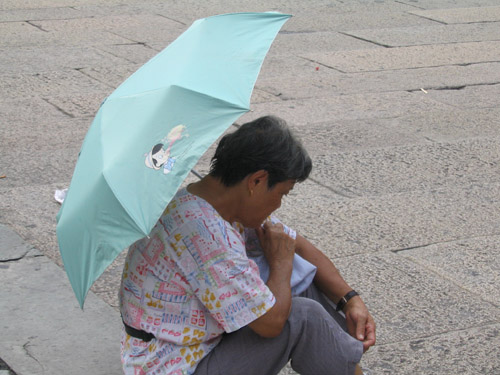
Throughout history, 在實現性別平等方面取得進展是一場長期而艱苦的戰鬥. 今天, 新興市場和世界各地對婦女權利的侵犯仍然普遍存在. It exists in many forms and disguises ranging from female infanticide, bride burning and violence against women in conflict, to systems which deny women equality in reproductive decisions, access to education, equal pay, equal legal rights and equal political voices. There remains much work to end the devastating consequences of female subordination. Gender inequality is morally wrong, bad economics and bad for business. 在光明的一面, 得益於技術, millions of voices that once could not be heard now have access to the global community. Never in the history of the world has the opportunity to accelerate the process for the empowerment of girls and women been greater. Earlier this year at the fourth Green Templeton College Emerging Markets Symposium at Oxford University, world authorities on the various forms of gender discrimination and inequality shared their personal judgments and opinions, including Sir George Alleyne, 大衛·沃森爵士, 州長瑪德琳獲取, 梅格·瓊斯, 琳達·斯科特, 簡·麥考利夫, 蘇曼貝里, 滇戈麥斯, 瑪麗·伊麗莎白·王, Jeni Klugman and Ian Scott. They agreed to continue the global conversation with me in my series “婦女”. In which emerging markets has the most significant progress been made in gender equality? What examples of significant success or failure in gender inequality around the world can we learn from? What role can international lenders and western customers of emerging nations’ goods and services play in accelerating the process? To explore answers to these and other questions for Part 2 的 “婦女,” I connected with Suman Bery, Chief Economist Shell International (Hague, 荷蘭), 傑尼克盧格曼, Director of Gender and Development at the World Bank Group, and Ian Scott, Executive Director of the Emerging Markets Symposium.
伊恩·斯科特: In which emerging markets has the most significant progress been made in gender equality and what have been the key elements in that process?
伊恩·斯科特: All emerging markets are committed to the precepts of gender equality embraced by the Universal Declaration of Human Rights, the Millennium Development Goals and the Convention on the Elimination of All Forms of Discrimination Against Women. Most have understood that gender inequality wastes human capital, sacrifices economic growth, deprives political systems of distinctive voices, denies children, young people and families the developmental agency of healthy, educated mothers and perpetuates the consequences of gender inequality from one generation to the next. Yet there are yawning gaps between policies, legislative actions and real world behaviors. Partial evidence of positive change is tempered by evidence that shows that women are disadvantaged on the uneven playing fields of government, business and civil society and that human potential continues to be wasted to a degree that is incompatible with human rights, 人類安全, sustainable economic growth, social cohesion and long run political stability.
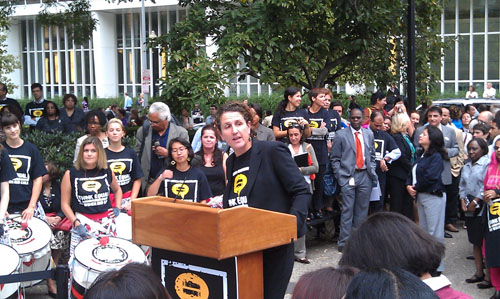
What examples of significant success or failure have you seen around the world?
伊恩·斯科特: The multiple criteria used in annual reports on gender equality by the World Economic Forum, the World Bank and the United Nations, show the Philippines performs far better than many wealthier countries (the US and UK included) while other emerging markets are holding in place and some show problematic trends. The Philippines is one of only eight countries (and the only country in Asia) to have closed the gap in education and health but Colombia, 匈牙利, 馬來西亞, 約旦, and Morocco have recently lost ground. Among emerging markets in the Middle East and North Africa – this region is at the bottom of gender equality rankings – Morocco is one of the poorest performers and is showing “significant regression”. Turkey and Pakistan, in spite of relatively good political participation scores, are both among the ten worst performers in terms of economic participation and opportunities for females. Pakistan’s performance in both education and health remains in the bottom ten. Latin America has closed gaps in education and health, but economic participation, as well as political empowerment remain low and two emerging markets are particularly problematic: 在過去的一年裡, Colombia dropped from 55th to 80th in the overall World Economic Forum rankings due to a relative drop in female income and Brazil, though rising, remains 124th in the world on wage equality (出 134 nations reporting). 中國和印度有問題. 中國在健康和生存指標上排名倒數第二, 主要是因為殺女嬰. India ranks lowest among large emerging markets with very poor performance in education, economic participation, 和, with China, is at the bottom on health and survival measures. 最近, India was ranked by the Reuters Foundation as one of the five worst countries on legal rights for women, with injustices from female infanticide to human trafficking to bride burning haunting other headlines. Thus despite strong economic performance in recent years, both India and China were identified by a recent Goldman Sachs analysis as needing to focus on women’s rights in order to sustain growth and maintain stability. Other nations contain still different paradoxes. South Africa ranks 14th on the World Economic Forum’s list–above both the US and the UK–primarily because of better political and economic participation. But the rate of violence against women in South Africa is among the highest in the world: rape and domestic violence are endemic. 所以, the health and survival measure for South Africa is poor and, in the United Nations Gender Inequality Report, both the maternal mortality rate and the adolescent fertility rate remain very high. Emerging markets in Eastern and Central Europe generally have relatively high levels of education and labour participation, as well as relatively lower fertility rates and higher GDP per capita. 然而, several nations, including Poland, 俄羅斯, and the Czech Republic have shown minuscule improvements on the World Economic Forum’s composite measures since 2006 and Hungary has declined. 之間 2010 和 2011, the Czech Republic dropped ten places in the overall rankings, due to widening wage gaps, in spite of its top ranking in educational attainment.
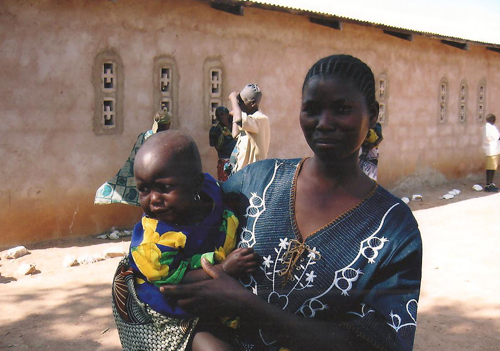
傑尼克盧格曼: What role can international lenders and western customers of emerging nations’ goods and services play in accelerating the process to end gender inequality? What examples of successful actions have you seen? What kind of coordination have you seen among governments and key lenders and customers to effect change?
傑尼克盧格曼: Gender gaps remain large – not only in terms of economic opportunities, but such other key dimensions as participation in decision-making and freedom from violence. These were documented in our 2012 World Development Report. The World Bank and others play an important role in redressing these disparities and accelerating progress towards gender equality; economic growth alone won’t suffice. We work with governments and partners to build knowledge about what works and doesn’t work – for example to enable female entrepreneurs to be successful. We provide financing support (some $29 billion of World Bank lending in fiscal year 2012 was gender informed). We support legal and institutional reforms. And we can help heighten the focus on results on the ground. Examples of successful actions can be found here, 在 www.worldbank.org/gender One example of success is the Burundi Health Sector Development Support Project, a national results-based financing program that has helped to improve maternal health. Results in the first year included increases in the number of health facility based births by 25 百分; in the number of prenatal consultations by 20 百分; and in the provision of family planning services obtained through health facilities by 27 百分. Another case of successful partnerships to effect change is the Economic Empowerment of Adolescent Girls and Young Women project in Liberia, supported by the World Bank. The project provides a combination of classroom training (including life skills and business skills) and job placement support. The results included a 50 percent increase in employment and a 115 percent increase in average weekly income for project participants, compared to those who did not participate.
蘇曼貝里: What role can western governments play in accelerating the steps that need to be taken by emerging market states? What blunt actions are considered feasible? Which western governments have taken a leadership role in this area?
蘇曼貝里: I believe strongly that it is counterproductive for rich countries to impose social conditionality on poor countries. This risks being seen as neo-colonialism and hypocritical given the turbulent interaction between rich and poor countries over the last two hundred years. A slightly more acceptable path is naming and shaming, but selectivity on the part of rich countries in avoiding the issue with socially conservative, resource-rich partners also strains credibility. The biggest contribution that rich countries can make in this area is to support credible independent research on the enormous benefits that female empowerment and equality of opportunity have conferred where these have been embraced, while not minimizing the human rights dimension of such equality. Ultimately this is a journey that each society needs to travel on by itself: after all it is only in the last forty years that the richest countries in the world have themselves seen the light.
欲了解更多信息: http://ems.gtc.ox.ac.uk/
For more articles in Women series: 部分 1, 部分 3, 部分 4 – 埃及

Photos courtesy of Jeni Klugman, World Bank Group, 和C. M. 魯賓.
在全球搜索教育, 和我一樣,全球知名的思想領袖,包括邁克爾·巴伯爵士 (英國), 博士. 邁克爾座 (美國), 博士. 萊昂特司特因 (美國), 克萊克里斯坦森教授 (美國), 博士. 琳達·達林 - 哈蒙德 (美國), 博士. 馬達夫恰範 (印度), 邁克爾·富蘭教授 (加拿大), 霍華德·加德納教授 (美國), 安迪·哈格里夫斯教授 (美國), 伊馮娜赫爾曼教授 (荷蘭), 克里斯汀Helstad教授 (挪威), 讓·亨德里克森 (美國), 玫瑰Hipkins教授 (新西蘭), 科妮莉亞Hoogland教授 (加拿大), 這位傑夫·約翰遜 (加拿大), 太太. 尚塔爾考夫曼 (比利時), 博士. Eija Kauppinen (芬蘭), 國務秘書塔皮奧Kosunen (芬蘭), 多米尼克·拉方丹教授 (比利時), 休·勞德教授 (英國), 本·萊文教授 (加拿大), 主肯麥克唐納 (英國), 巴里McGaw教授 (澳大利亞), 希夫納達爾 (印度), Ř教授. 納塔拉詹 (印度), 博士. 吳PAK (新加坡), 博士. 丹尼斯教皇 (美國), 斯瑞達拉賈戈帕蘭 (印度), 博士. 黛安·拉維奇 (美國), 理查德·威爾遜·賴利 (美國), 肯·羅賓遜爵士 (英國), 帕西SAHLBERG教授 (芬蘭), 安德烈亞斯·施萊歇 (PISA, 經合組織), 博士. 安東尼·塞爾頓 (英國), 博士. 大衛·謝弗 (美國), 博士. 基爾斯滕都沉浸式 (挪威), 總理斯蒂芬·SPAHN (美國), 伊夫Theze (法國公立高中美國), 查爾斯Ungerleider教授 (加拿大), 托尼·瓦格納教授 (美國), 大衛·沃森爵士 (英國), 迪倫Wiliam教授 (英國), 博士. 馬克沃莫爾德 (英國), 西奧Wubbels教授 (荷蘭), 邁克爾·楊教授 (英國), 和張民選教授 (中國) 因為他們探索所有國家今天面臨的大畫面的教育問題. 全球搜索教育社區頁面
ç. M. 魯賓是兩個廣為傳誦的在線系列,她接受了筆者 2011 厄普頓·辛克萊獎, “全球搜索教育” 和 “我們將如何閱讀?” 她也是三本暢銷書, 其中 真正的愛麗絲夢遊仙境.


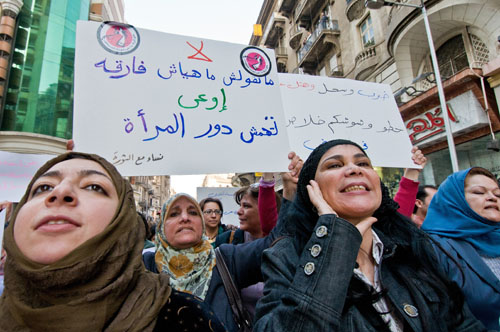

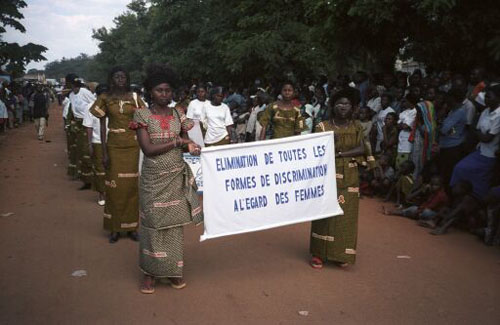

最新評論